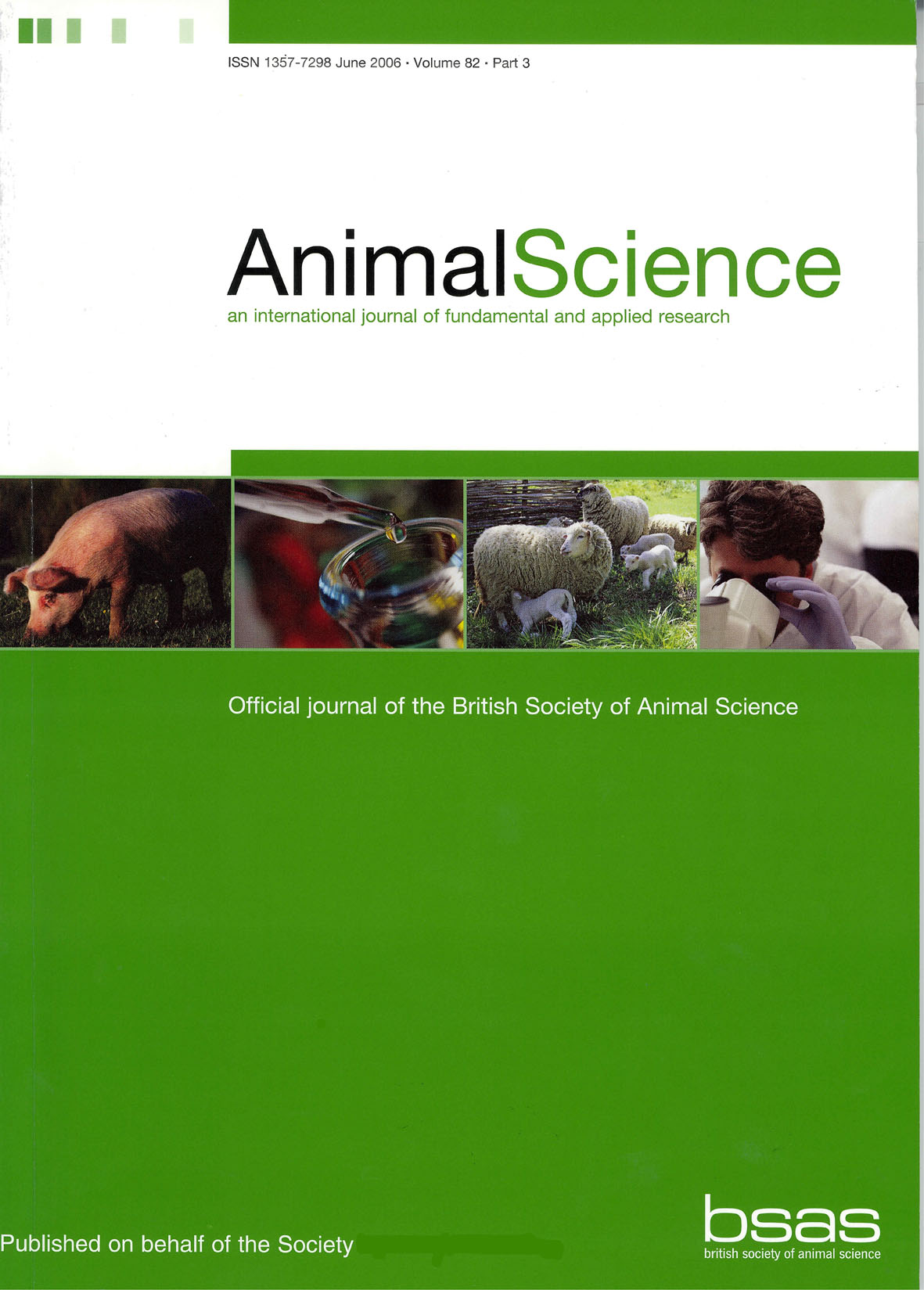Article contents
Comparison of the productivity of Texel and Rouge de l’Ouest ewes and their crosses
Published online by Cambridge University Press: 18 August 2016
Abstract
An experiment was undertaken to compare the productivity of crossbred ewes, produced by crossing Texel sires with Rouge de l’Ouest (Rouge) dams and Rouge sires with Texel dams, relative to purebred Texel and Rouge ewes. The purebred and crossbred ewes were crossed with Rouge and Texel sires. The proportion of productive ewes was similar in the purebred and crossbred ewes with an average figure of 0·92. Irrespective of crossing sire, Rouge ewes produced 0·48 more lambs per ewe lambed than Texel ewes (P < 0·001). The two crossbred ewe types (Texel ✕ Rouge and Rouge ✕ Texel) each produced similar numbers of lambs (on average 1·92 lambs per ewe lambed). Individual heterosis values for ewe fertility and prolificacy were small and not significant (–1·67 for the proportion of productive ewes and –3·14 for the number of lambs born per ewe lambed). Maternal heterosis values were also not significant but were of larger magnitude (6·26 for ewe fertility and 3·12 for prolificacy). Lamb mortality (number of lambs born dead per ewe lambed) at birth was similar for purebred Rouge (0·44) and Texel (0·30) ewes and was significantly reduced by crossbred matings and mating the crossbred ewes (individual heterosis –30·68, P < 0·10; maternal heterosis –80·23, P < 0·001). Individual and maternal heterosis values for lamb growth rate from birth to six weeks were 8 (P < 0·05) and 4 (P > 0·05) respectively. Lamb growth rate from birth to weaning was significantly lower in lambs from Texel ewes compared with those from the other genotypes (P < 0·05). Individual and maternal heterosis values for live-weight gain from birth to weaning were 5 (P < 0·10) and 5 (P < 0·01). The results of the current study demonstrate the superior performance of purebred Rouge ewes compared with purebred Texel ewes in terms of prolificacy and lamb growth rate from birth to weaning. However, both breeds had high lamb mortality at birth. Crossbreeding led to the production of hybrid ewes which had relatively high prolificacy with low levels of dystocia and lamb mortality.
- Type
- Research Article
- Information
- Copyright
- Copyright © British Society of Animal Science 2002
References
- 5
- Cited by


